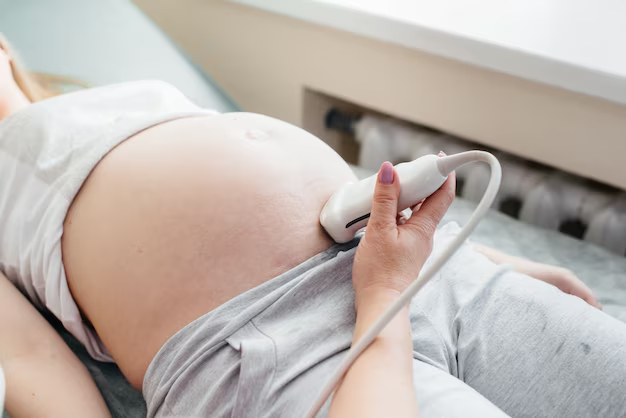Understanding Pregnancy-Induced Hypertension: Causes and Insights
Pregnancy is an exciting journey, but it also comes with its set of challenges and concerns. One such concern is Pregnancy-Induced Hypertension (PIH), also known as gestational hypertension. This condition is characterized by high blood pressure during pregnancy and can affect both the mother and baby. Understanding what causes PIH, its risks, and how to manage it effectively is crucial for ensuring a healthy pregnancy.
What is Pregnancy-Induced Hypertension?
Pregnancy-Induced Hypertension is a condition where pregnant women develop high blood pressure after the 20th week of pregnancy. Unlike chronic hypertension, which is present before pregnancy or detected before the 20th week, PIH typically subsides after giving birth. However, if left unmanaged, it can lead to more serious conditions such as preeclampsia.
The Role of Blood Pressure in Pregnancy
Blood pressure measures the force of blood against the walls of the arteries. In pregnancy, blood pressure is closely monitored because significant changes can indicate a problem. Normal blood pressure is typically around 120/80 mmHg. In PIH, blood pressure readings exceed 140/90 mmHg, and consistent measurement over this threshold confirms the diagnosis.
What Causes PIH?
The exact cause of PIH remains unknown, but several factors and conditions are thought to contribute:
Genetic and Family History
If a woman’s mother or sisters had gestational hypertension, there might be a higher risk for her to develop it. This suggests a genetic predisposition to the condition.
Age and Health Conditions
Women over 35 or under 20 are more susceptible to PIH. Pre-existing conditions such as obesity, diabetes, or kidney disease can also increase the risk.
Multiple Pregnancies
Carrying more than one child, such as twins or triplets, increases the likelihood of developing PIH due to the extra demands on the body.
First-Time Mothers
Women experiencing their first pregnancies tend to have a higher risk of PIH compared to those who have had previous pregnancies.
Lifestyle Factors
Unhealthy lifestyle choices, such as poor diet, lack of physical activity, or high stress levels, can also contribute to high blood pressure during pregnancy.
Complications Associated with PIH
Understanding the potential risks and complications of PIH can motivate expecting mothers and caregivers to take necessary precautions:
Preeclampsia
Probably the most concerning complication of PIH is preeclampsia, which involves proteinuria (excess protein in the urine) and affects various organ systems. Severe cases can lead to life-threatening situations for both mother and child.
Fetal Growth Restriction
High blood pressure can reduce blood flow to the placenta, causing fetal growth restriction and potentially leading to low birth weight or premature delivery.
Preterm Birth
To prevent severe complications, early delivery may become necessary, potentially resulting in a preterm birth and requiring specialized neonatal care.
Placental Abruption
PIH can cause the placenta to detach from the uterine wall prematurely, known as placental abruption, which poses serious risks to both the mother and the baby.
Managing and Monitoring PIH
Being diagnosed with PIH can be unsettling, but there are effective management strategies:
Regular Prenatal Check-ups
Frequent monitoring is essential. Regular prenatal visits allow healthcare providers to monitor blood pressure and assess the health of both the mother and the fetus.
Weight Management and Nutrition
Maintaining a healthy weight and following a nutritious diet rich in fruits, vegetables, whole grains, and lean proteins can help manage blood pressure levels. Limiting salt intake is also beneficial.
Physical Activity
Engaging in moderate, pregnancy-safe exercises like walking or swimming can improve cardiovascular health and reduce stress, helping to keep blood pressure in check.
Medication
In some cases, doctors may prescribe antihypertensive medications to manage high blood pressure safely during pregnancy. It’s vital to follow the healthcare provider's instructions and not self-medicate.
Stress Reduction
Techniques such as yoga, meditation, or deep-breathing exercises can alleviate stress. Emotional support from family and caregivers also plays a significant role.
Seeking Support and Guidance
Dealing with PIH involves facing numerous decisions and potential complications. Here are some ways to seek support and guidance:
Discussing with Healthcare Providers
Maintaining open communication with doctors and midwives helps in understanding the condition better and empowers mothers to make informed decisions.
Family and Peer Support
Having a reliable support system made up of family, friends, or support groups can provide emotional relief and practical help.
Education and Resources
Accessing educational resources on PIH can help mothers understand what to expect, identify warning signs, and make timely healthcare decisions.
Insights for Expecting Mothers
Pregnancy-Induced Hypertension requires careful monitoring and proper management to ensure favorable outcomes for both mother and child. Taking proactive steps by maintaining a healthy lifestyle, attending regular check-ups, and fostering a supportive environment can significantly reduce the risks associated with PIH.
Embrace this challenging yet fulfilling journey by staying informed and prioritizing your health and that of your baby. Acknowledging and understanding PIH not only prepares you for potential challenges but also equips you with the knowledge to overcome them.
Summary of Key Insights:
- 🔍 PIH Overview: High blood pressure after the 20th week of pregnancy.
- 🧬 Contributing Factors: Genetics, age, first pregnancies, existing health conditions, lifestyle choices.
- ⚠️ Possible Complications: Preeclampsia, fetal growth issues, preterm birth, placental abruption.
- 🩺 Effective Management:
- Regular prenatal visits
- Balanced diet and salt reduction
- Safe physical activity
- Medication, if prescribed
- Stress management techniques like meditation
- 🤝 Support and Resources: Engage with healthcare providers, tap into family and peer support, educate yourself to understand PIH better.
Understanding these factors and taking proactive measures can improve pregnancy outcomes and empower mothers to approach the experience with confidence and preparedness. 🌟

Related Articles
- Are Eggs Bad For Hypertension
- Are Endocrine Disorders Causing Hypertension Rare
- Can Alcohol Cause Hypertension
- Can Allergies Cause Hypertension
- Can Anemci People Get Hypertension
- Can Anemia Cause Hypertension
- Can Antibiotics Cause Hypertension
- Can Anxiety Cause Hypertension
- Can Asthma Cause Hypertension
- Can Atherosclerosis Cause Hypertension
